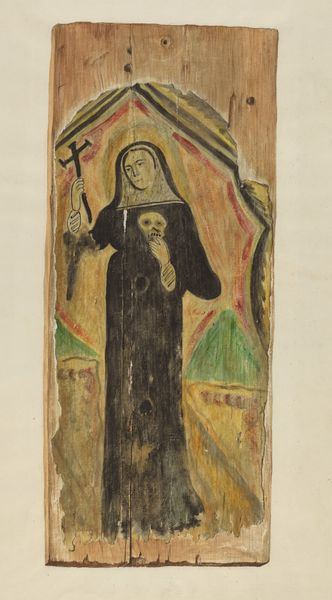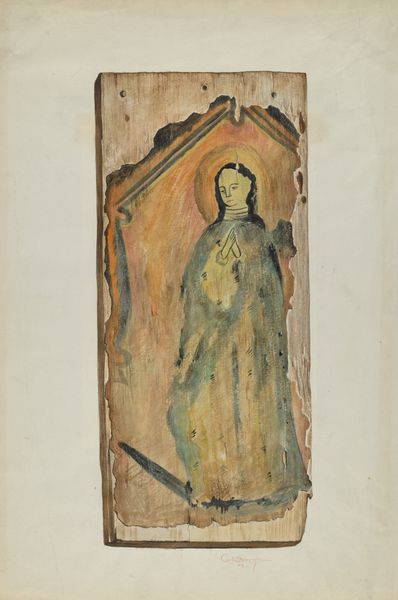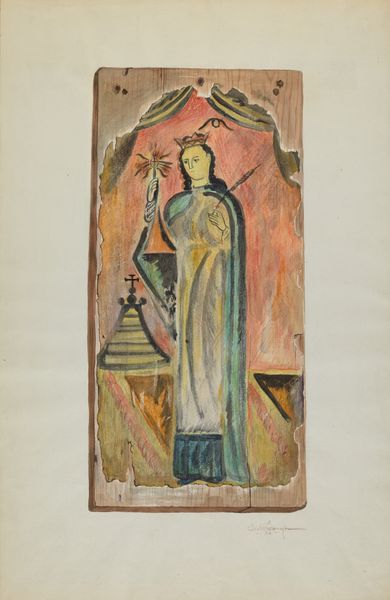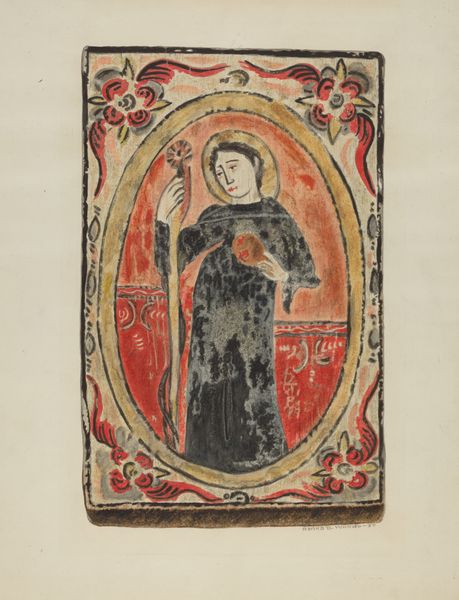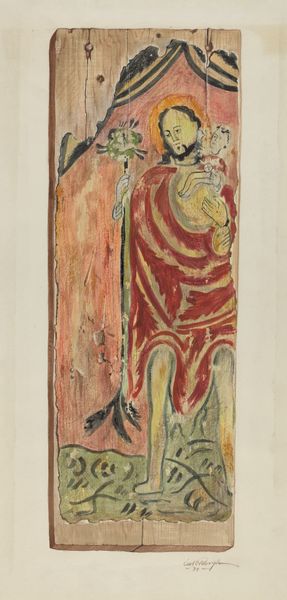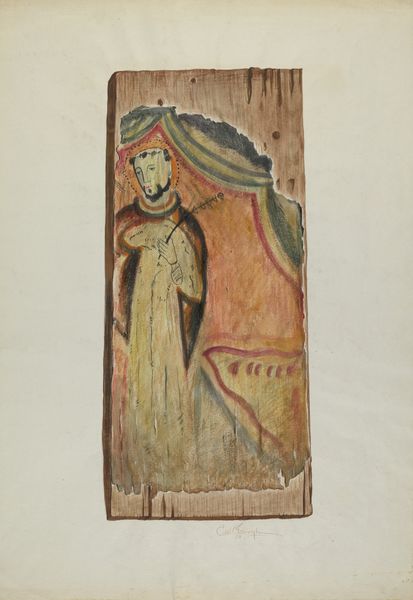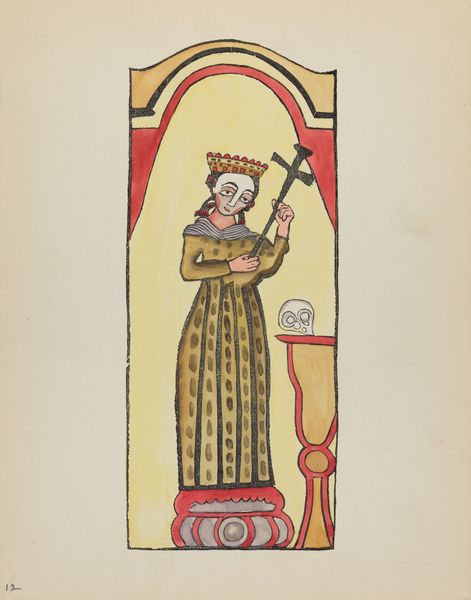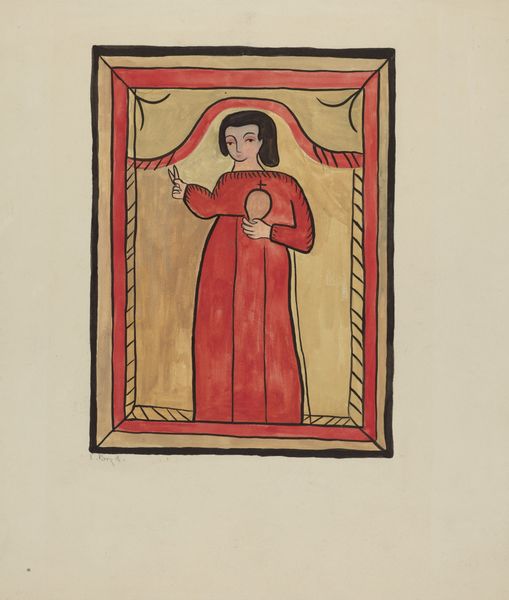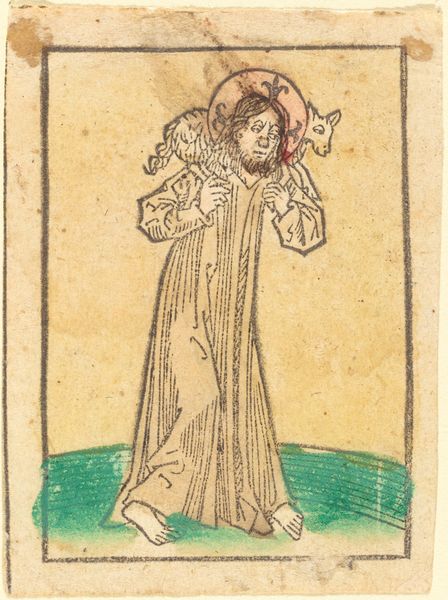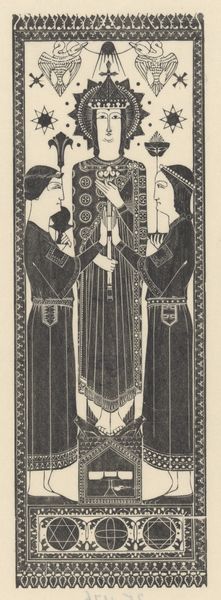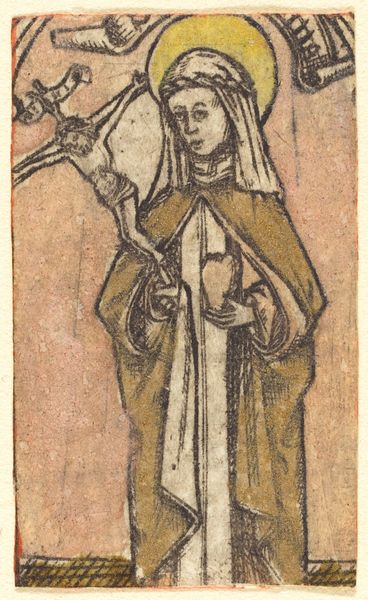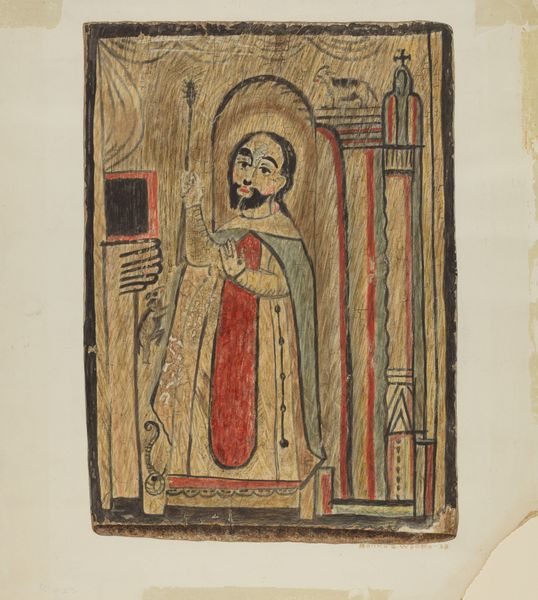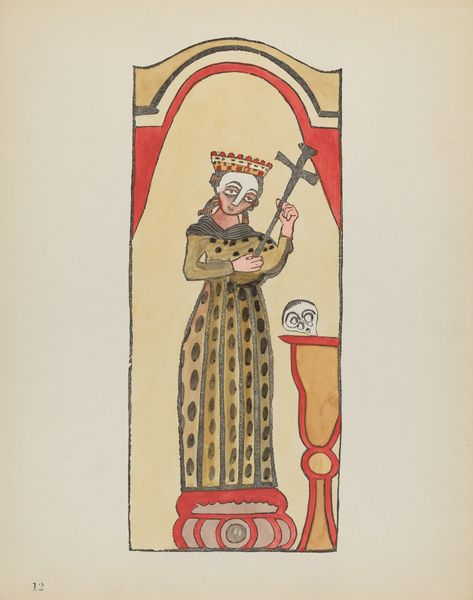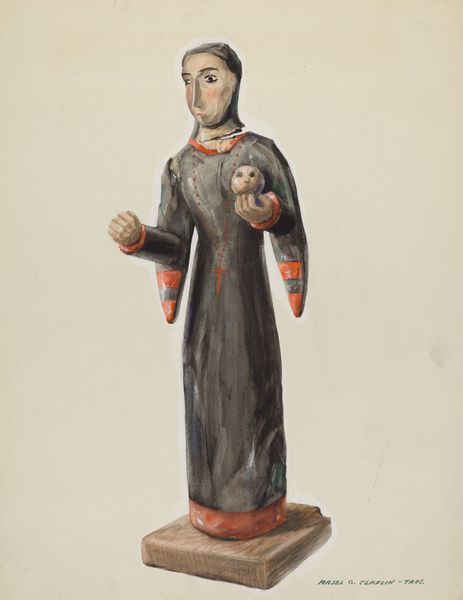
drawing, tempera, painting, wood
#
portrait
#
drawing
#
tempera
#
painting
#
oil painting
#
coloured pencil
#
folk-art
#
wood
Dimensions: overall: 51.4 x 27.8 cm (20 1/4 x 10 15/16 in.) Original IAD Object: 26 1/4"high; 11"wide
Copyright: National Gallery of Art: CC0 1.0
Curator: Let's spend a moment with "Retablo," an artwork dating back to approximately 1939, by Carl O'Bergh. It’s an intriguing piece rendered with tempera, colored pencil, and possibly oil paint on wood. Editor: Right off the bat, it's giving me very humble and raw vibes, like something devotional but also almost accidentally made, do you know what I mean? It's so frontal and slightly wonky but honest. Curator: Absolutely. Retablos, especially those of folk origin, often possess a directness that transcends formal artistry. Here, we see the iconic representation of a saint, probably holding a cross as a symbol of faith and potentially an arrow representing martyrdom. The halo indicates her saintly status, yet the overall rendering feels almost naive in its simplicity. Editor: Naive is a good word. I'm also thinking about the artist's hand—like you can really feel the person making this, the way they’ve let the wood grain show through and didn't worry too much about perfection. And all the subdued color – a limited palette of umber, yellows, pinks, all grounded by that dark black robe. What do you make of the theatrical setting? Curator: The painted backdrop definitely lends a theatrical, almost dreamlike quality. Perhaps meant to evoke a sacred space within the home. It invites contemplation, offering solace and spiritual strength, while conforming to tradition, and, perhaps personal needs and visions. The artist has transformed folk memory through symbolism and the psychology of belief. Editor: I can see that. There's a real tenderness, even with the starkness, which adds to that sense of personal devotion. This piece, humble as it is, speaks volumes. I feel it. Curator: Indeed. This 'Retablo' reminds us how visual expressions of faith have often emerged outside established institutions, taking shape in profoundly individual and resonant ways. Editor: Yeah. This makes you consider the story *behind* the image itself – the giver and the receiver – the community of care implied. Curator: Yes, absolutely. Thanks for highlighting its more intimate, human context; this has really offered another perspective.
Comments
No comments
Be the first to comment and join the conversation on the ultimate creative platform.
